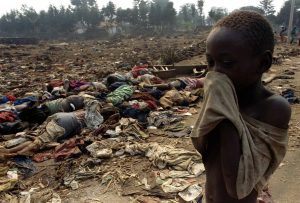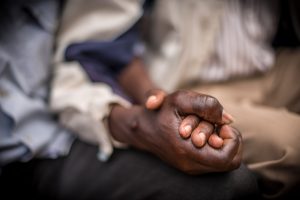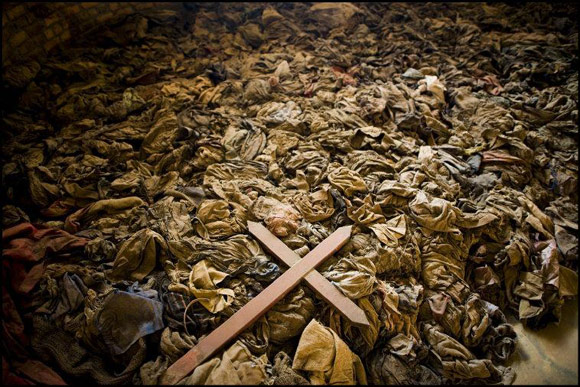I woke after a wonderful sleep. It was a bit surprising considering where I was. The city of Kigali, the capital of Rwanda was eerily silent. Normally the sleeper is awakened throughout the night by dogs barking at the moon and car horns beeping as the compound guards are alerted to allow the homeowner access to their home without exiting the car since it likely that at night the driver will be robbed or the car stolen or both. This night was quiet; no dogs, no beeping, none of the normal sounds of the night.
Rwanda had been through Genocide. Some 800,000 to 1 million people, mostly Tutsis had been slaughtered by their own countrymen; the Hutu people. Years of preparation had taken place, as the Tutsis became the underdogs of the ruling Hutu government. It was quite easy to identify the differences between these two man-made people groups. Tutsis are tall, thin people with a proud nose and Hutus short and stocky with a flat nose. Not to mention the (H) or (T) marked on their identity card, just in case there was any doubt.
Between the month s of April and June in 1994 ‘all Hell’ broke loose. Some sporadic brutality had been seen before that, but now the government controlled radio station began to broadcast its demonic call. “Get rid of the Cockroaches” referring of course to the cattle-keeping Tutsi. Prior to this the Tutsi had been asked to surrender their implements (Hoes, hammers, machetes and the like). The Huti Govermnent had ordered 500,000 machetes from India and with the collected implements distributed their killing tools to the Interahamwe (Those who work/fight together) a Hutu parliamentary militia organisation whose prime aim was to kill Tutsis and anyone with part Tutsi blood (for some had inter-married and had part Hutu part Tutsi children) or those who in some way supported the Tutsi.
s of April and June in 1994 ‘all Hell’ broke loose. Some sporadic brutality had been seen before that, but now the government controlled radio station began to broadcast its demonic call. “Get rid of the Cockroaches” referring of course to the cattle-keeping Tutsi. Prior to this the Tutsi had been asked to surrender their implements (Hoes, hammers, machetes and the like). The Huti Govermnent had ordered 500,000 machetes from India and with the collected implements distributed their killing tools to the Interahamwe (Those who work/fight together) a Hutu parliamentary militia organisation whose prime aim was to kill Tutsis and anyone with part Tutsi blood (for some had inter-married and had part Hutu part Tutsi children) or those who in some way supported the Tutsi.
The eerie silence was due to the fact that all of the city’s dogs had been destroyed (along with all birds of prey) since for so long they had been feeding on human carrion and were roaming the city in packs attacking individuals who were going about their daily business. For a long time the bodies of slaughtered Tutsis and those of the Interahamwe who had been killed by the Rwanda Patriotic Front (RPF) who invaded as Uganda’s Rwandan refugee people of previous genocides and uprisings could hold back no longer. There had been utter devastation. No one had the heart to begin to clean up the detritus of Genocide and war. Rwanda was, by anyone’s standards, broken.
The hatred that had been generated, stirring up one people group against another, by western governments in a bid to maintain control and keep their people in power was awful. And along with that the western faces that were turned away as the brutality was meted out was as bad if not worse. To this day a Genocide memorial is held for ‘100 days’ every year in Rwanda to maintain the stance ‘Never Again’. However the broken people still have their personal nightmares to live through. Hospitals are full of sedated patients who are unable to handle the memories of their time of trouble and the loss of so many of their family members.
You wouldn’t recognise Rwanda today. It has changed so much from the horror of Geno cide. Kigali is a beautiful modern city. Roads and infrastructure is being updated and renewed. The whole country is now in a new place. The one huge change is one brought about by the Church and the Government working together. Truth and Reconciliation along with Forgiveness has made it possible for the two people groups to live and work together again. The fated (H) and (T) have been removed from official IDs and now instead of Hutu and Tutsi the people are called Rwandese. Yes there are still pockets of trouble; those who believe the ‘job’ has still to be finished; the Interahamwe in the DR Congo bush waiting their call to return. But Rwanda has fundamentally changed. The dogs and birds of prey are there again but the sweetness of forgiveness is everywhere. God has done the impossible in Rwanda.
cide. Kigali is a beautiful modern city. Roads and infrastructure is being updated and renewed. The whole country is now in a new place. The one huge change is one brought about by the Church and the Government working together. Truth and Reconciliation along with Forgiveness has made it possible for the two people groups to live and work together again. The fated (H) and (T) have been removed from official IDs and now instead of Hutu and Tutsi the people are called Rwandese. Yes there are still pockets of trouble; those who believe the ‘job’ has still to be finished; the Interahamwe in the DR Congo bush waiting their call to return. But Rwanda has fundamentally changed. The dogs and birds of prey are there again but the sweetness of forgiveness is everywhere. God has done the impossible in Rwanda.
______________________________________________________________________________
Hugh Henderson MBE is the CEO of Mission International and an elder in St. Peter’s Free Church.
May 2017


Leave A Comment
You must be logged in to post a comment.